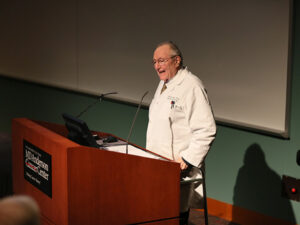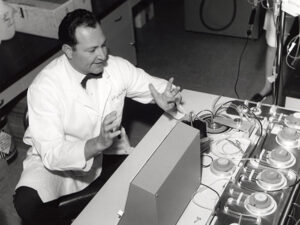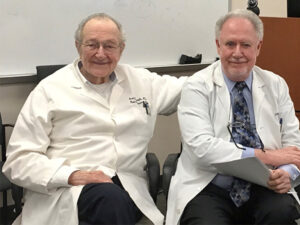Roswell Park Comprehensive Cancer Center and the Bristol Myers Squibb Foundation have established a $3.3 million program to address the cancer burden in rural areas and Native Nations across New York State, with an emphasis on the Western New York region.
Twenty-five years ago, The Cancer Letter missed a big story.
Emil J Freireich was a big man in stature, with a booming voice. He was one of the last of the 60 original members of the American Society of Clinical Oncology.
When I started my fellowship at MD Anderson Cancer Center in 1980, Dr. Freireich headed the Department of Developmental Therapeutics.
“Humans cannot live without hope. Hopelessness is the greatest trauma a person has to suffer.”—Emil J Freireich, MD
Emil J Freireich, MD, a trailblazing oncologist who developed groundbreaking therapies for childhood leukemia and came to be recognized as a founding father of modern clinical cancer research, passed away peacefully in Houston at his beloved institution, The University of Texas MD Anderson Cancer Center, on Feb. 1. He was 93.
J enjoyed explaining that the letter J in his name appeared in his birth certificate.
In January, after tumultuous weeks filled with unprecedented political tension and rising COVID-19 infections across the nation, thrilling news arrived quietly in my email inbox: official notice of the Abramson Cancer Center's five-year, $45 million Cancer Center Support Grant award from the National Cancer Institute, which had bestowed us with a merit rating of “Exceptional” Comprehensive Cancer Center last year.
Jill Biden stopped by at NCI earlier this week to reaffirm the Bidens' pledge to “fight cancer as we know it”—an early signal that cancer research is near the top of the national agenda at the Biden-Harris White House.
FDA has approved a combination of Opdivo (nivolumab) and Cabometyx (cabozantinib) as first-line treatment for patients with advanced renal cell carcinoma.













